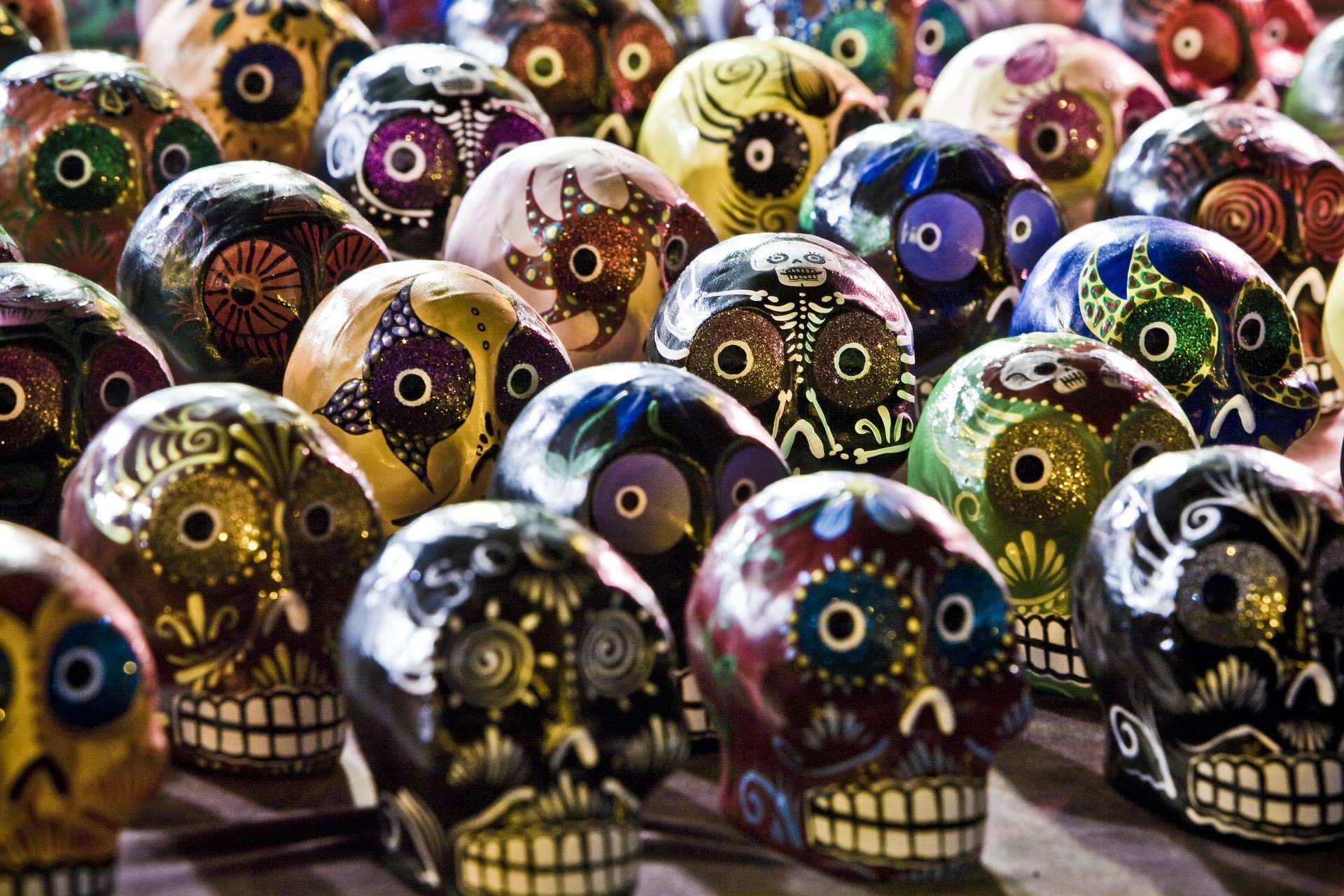What do you imagine when you hear the word skull? The answer probably involves something scary. Well, the Mexicans would think of celebration when they see a skull. It is because sugar skulls form a significant part of their culture, so much that they use sugar skulls during an important festival.
These sugar skulls are a significant item in the Mexican culture and their festival – the Day of the Dead. People use them to honor their deceased loved ones, but that is not all. According to traditional beliefs, the lines between the land of the dead and living blur during this time. It is why the souls of deceased people roam around in the mortal world. Families gather at graveyards and altars to offer gifts and eatables to their deceased loved ones. The Day of the Dead is also an occasion to celebrate the circle of life with everyone.
What do the sugar skulls represent?
A sugar skull represents a real human skull to remember the people who passed away. It celebrates death and implies that the end of someone’s life can also be happy. Traditionally, people made sugar skulls out of sugar, but nowadays, they make them from chocolate, nuts, and other ingredients. People also paint these sugar skulls to represent different emotions and elements. Here are the meanings behind every color in the sugar skull.
- Red: Blood
- Purple: Pain
- Pink: Hope
- White: Purity
- Black: Land of the Dead
- Orange: Sunshine
- Yellow: Mexican marigold
The shapes of the sugar skulls also have significant meanings. A small one could represent the death of a young child/infant, whereas a large one could indicate an adult. People also make the skulls look like the deceased loved ones. For example, some people draw a smile on their face or give it crazy hair. People do all of this to represent the circle of life and celebrate the Day of the Dead.
Apart from colors and shapes, these sugar skulls also have names. People often name these skull ornaments after their deceased loved ones. In this way, they dedicate these skulls and their offerings to the people that have passed away.
Imagery and symbolism of the skull in Mexican traditions
Mexican occasions, including funerals, are lively affairs. On the day of the Dead, you will see skulls in every corner of the country. Sometimes people also paint their faces to look like skulls. The significance of scales in Mexican culture can appear strange to outsiders. Other cultures associate sugar skulls with death, but Mexicans consider them significant symbols of life.
The term sugar skulls explain the symbolism of these festive ornaments. While the skull ornament may cause you to think about death, fear, the sugar implies sweetness and positivity. Thus, it sends the message that there can be happiness in end-of-life. People offered sugar skulls to both living and dead loved ones. When given to friends and family, the sugar skulls are a sign of thoughtfulness.
History and eventual commercialization of sugar skulls
Sugar skulls have been a part of Mexican culture from the days of the Aztec Empire. In the Aztec period, people would make altars for their dead loved ones like today. However, they used real skulls while celebrating the occasion. The Spanish explorers were responsible for changing the tradition and introducing the Aztec Empire to alfeñique. Alfeñique is a technique from the Middle East to create a moldable sugar paste, which the Spanish explorers brought to Mexico and the new world. Over the years, the occasion merged slowly with catholic holidays and turned into the day of the Dead.
Today, sugar skulls are not limited to the occasion of Day of the Dead; they have found their way into pop culture. However, the heavy commercialization of sugar skulls also has some downsides. Sugar skulls manufactured for commercial use often do not represent the traditional colors and symbols.
Skulls are an integral part of Mexican society. It is unlike other countries that fear them. Thanks to Mexican traditions, people can think about death as an occasion more than a sad and tragic affair. Such diverse rituals help us perceive the same concept in different ways due to which people need to preserve them.




